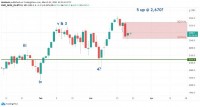|
AQR Managed Futures Well-known hedge fund manager AQR Capital launched a series of mutual funds in the past year. This January it launched a managed futures fund. There’s good news and bad news about this new vehicle. On one hand, the fund lost 4.30% in its first two months. At the same time, assets grew from the $10 million seed capital AQR put in to almost $59 million. That’s a small part of the firm’s $23 billion in total assets (as of 2009) but growth has been strong. AQR managed futures follows what sounds like a fairly standard trend-following strategy and its returns are roughly in line with most trend followers. Below we present selected highlights from the prospectus. When AQR started up in 1998, big investors were drawn to the hedge fund because of the reputation of the former Goldman Sachs managers who founded the firm. The experienced team is a draw also for the new fund. However, the Goldman Sachs attraction may have faded somewhat with the weak performance of the bank’s quantitative hedge funds in recent years. AQR founder Clifford Asness was a managing director and head of quantitative research at Goldman Sachs Asset Management. John Liew, another founder, was vice president and portfolio manager at Goldman and before that worked at Trout Trading Company. Brian Hurst was an associate in Goldman’s quantitative research group. All three are among the AQR futures fund’s managers. Another manager, Lasse Pedersen, was professor of finance at New York University’s Stern School of Business before joining AQR in 2007. He has been consultant to the Federal Reserve Bank of New York and served on the economic advisory board of NASDAQ. Yao Hua Ooi was an analyst at UBS before coming to AQR. The fund pursues absolute returns using proprietary quantitative models to identify price trends in equity, fixed income, currency and commodity instruments. Once a trend is determined, it takes either a long or short position. The investment philosophy aims to profit from behavioral biases and inefficiencies in markets—described in this issue’s Futures Lab, based on papers from the AQR team. Short and Long Terms Several strategies are used. Thus the short-term strategy has the goal of taking advantage of market inefficiencies due to anchoring bias, which slows down price changes, disposition effect, which impedes price responses to events, and the interventions of price-insensitive market players like central banks. These factors cause trends to start. The long-term strategy targets other behavioral patterns that cause trends to continue— in particular investor herding, confirmation bias and certain risk management tools. For instance, people project recent data into the future, which leads to piling into investments that recently made money. Some risk-management schemes will sell in down markets and buy in up markets. These behaviors cause trends to persist for some time. Another piece of the AQR manages futures approach is the over-extended trend strategy. This component signals when a trend is over-extended and is likely to reverse, on the basis of trend velocity and length and magnitude. Trends that move very quickly or have persisted for a long period and moved prices substantially have a higher tendency to reverse. AQR uses a proprietary drawdown control system engineered to reduce the size of drawdowns. Despite risk control measures to limit drawdowns, the managers expect the fund’s returns to be volatile over short-term periods because of the inherent leverage in futures instruments. The target annualized volatility is 10%, with a range between 5% and 13%. Regarding trading costs, the fund relies on the proprietary portfolio optimization techniques and electronic order placement algorithms AQR developed for the various quantitative trading programs it runs. The net expense ratio for retail investors is 1.50%. Like other managed futures programs, the fund is expected to have low correlation to stock, bond, currency and commodity markets over a market cycle and hence add diversification to investor portfolios. David Kabiller, AQR head of client strategies, says that given the strategy’s close to zero correlation to other asset classes, it can provide significant diversification to both alternative and traditional stock and bond portfolios, particularly during a bear market. |
|
This article was published in Opalesque Futures Intelligence.
|





 RSS
RSS











